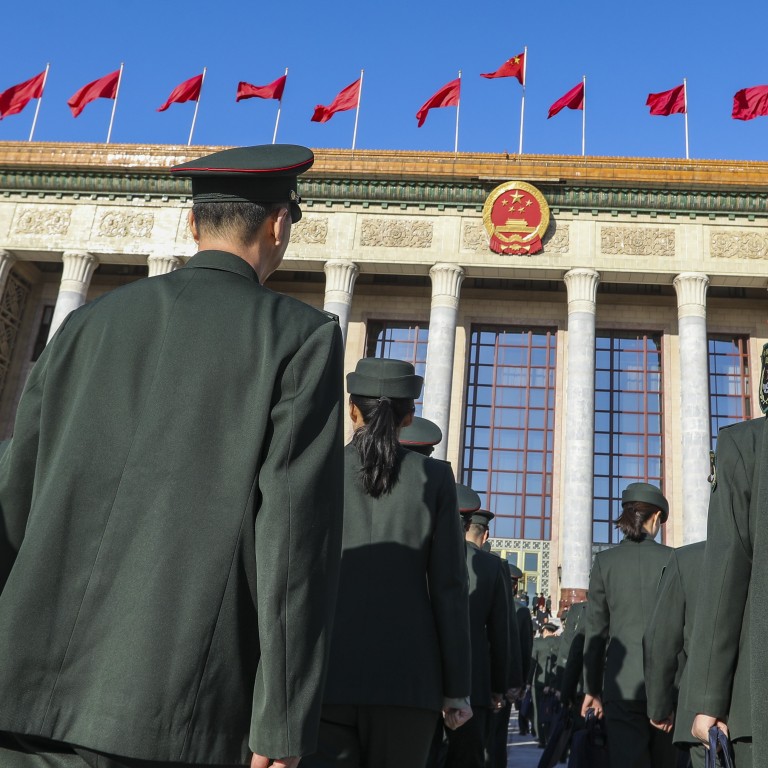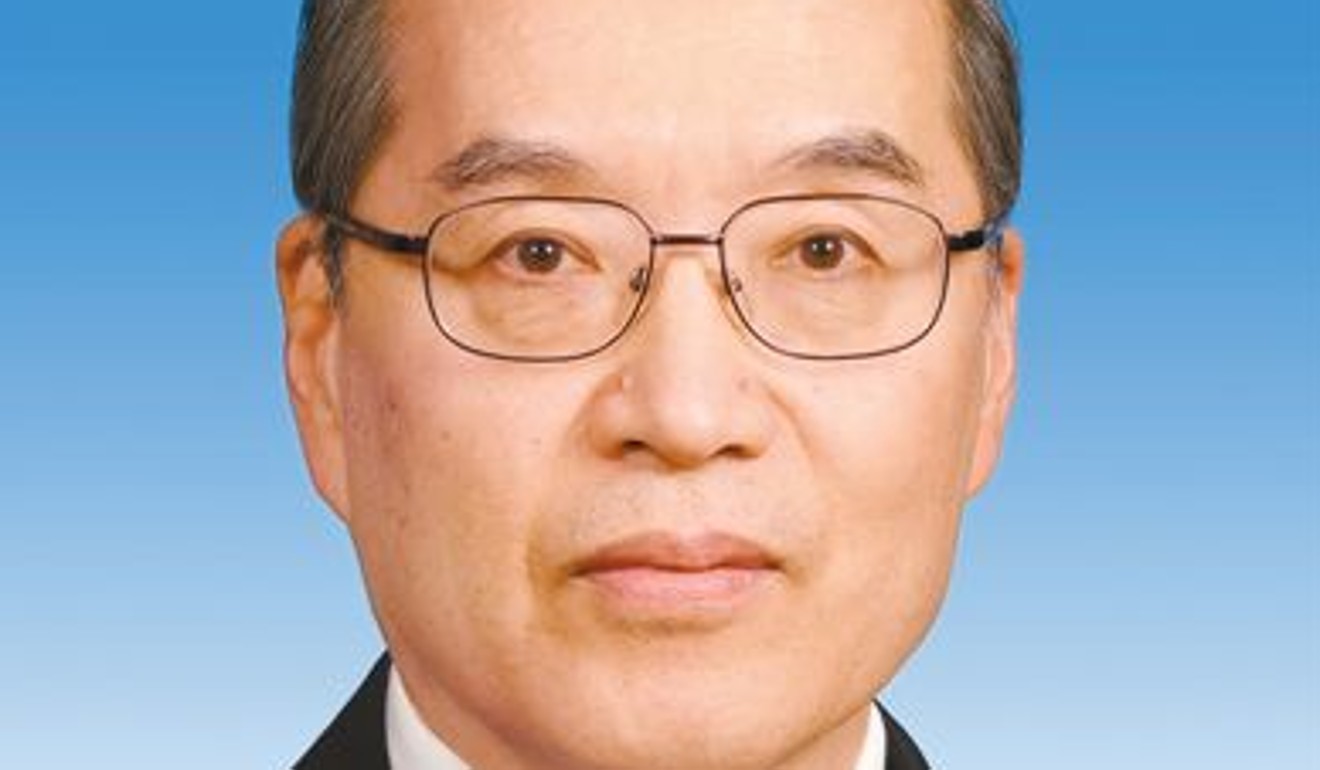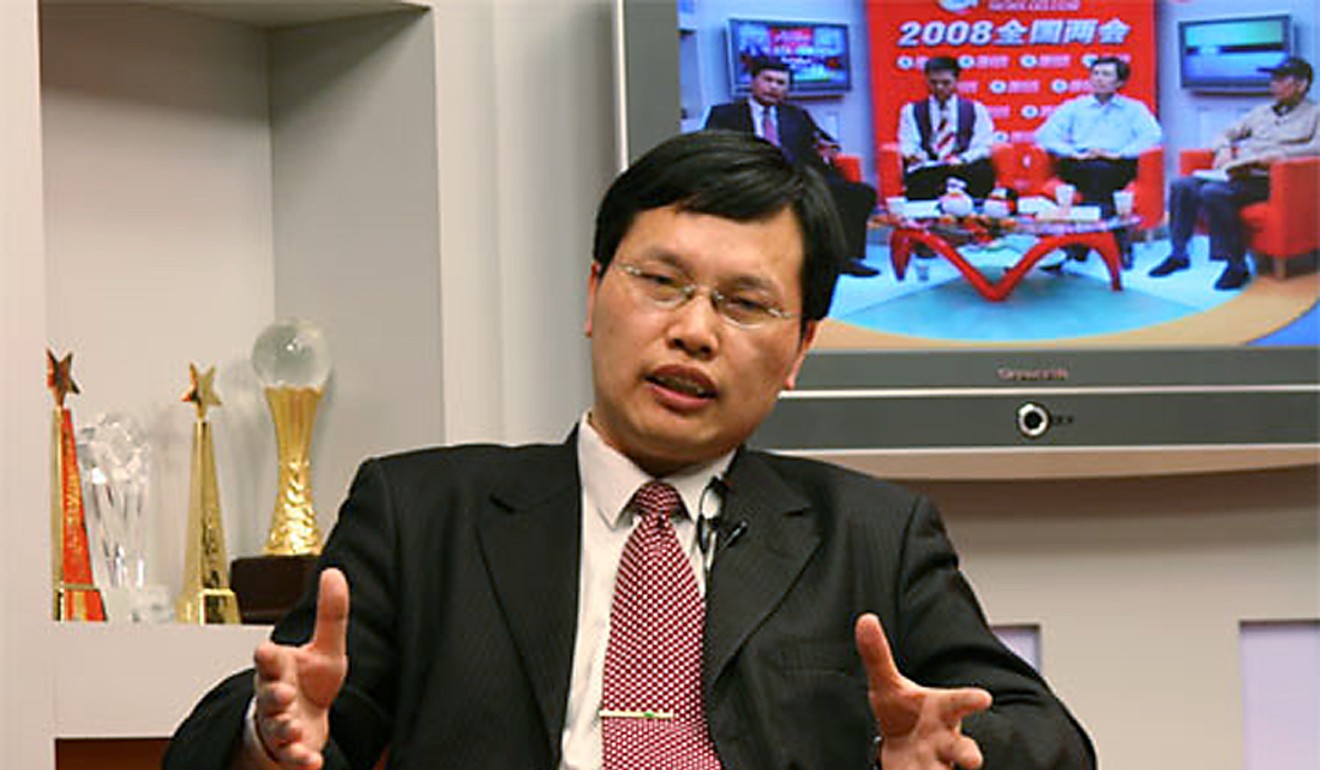
China’s top prosecutor urges courts to cut entrepreneurs more slack, as concerns grow about unfair treatment
- Zhang Jun, the head of the Supreme People’s Procuratorate, said courts should try to avoid formal charges and seek probation when possible
- Private business leaders and workers are far more likely to face criminal charges compared with their peers in the state sector
China’s chief prosecutor has called for entrepreneurs to be given more leeway by the country’s judicial system in an indirect acknowledgement that private business leaders sometimes face unequal treatment from the country’s courts.
Zhang Jun, who is also minister for justice, said prosecutors should give the private economy greater support as far as the law permitted.
“For private businessmen who are being investigated, [we should] take the position that there should be no arrest or charges whenever it is possible and consider probation as the preferred sentence if possible,” Zhang said, according to China National Radio.
“The Supreme People’s Procuratorate takes fairness seriously in protecting the legitimate rights of private businesses,” Zhang told an open day for the state prosecutor. “[We have] taken a clear position about investigations involving private entrepreneurs.”

According to the report, the Supreme People’s Procuratorate has launched a 10-month-long special review looking into the detention of private entrepreneurs and an unspecified number of businessmen had been set free.
Wang Songmiao, a spokesman for the prosecutor, said this “leniency” had already shown practical results.
“In the first 10 months of this year, the percentage of ‘no-arrest’ cases involving private businessmen was 29 per cent, 6.9 percentage points above the average rate,” Wang said. “The no-charge rate [for private businessmen and women] was 15.3 per cent, 6.5 percentage points higher than the average.”
There’s a saying that entrepreneurs in China are either in jail or are on the way to jail
Under China’s legal system, a suspect can still be held in detention for lengthy periods even if no formal arrest warrant or charges are issued.
Private business owners face a higher risk of being targeted by the legal system compared with those working in the state sector.
A 2018 study by Beijing Normal University showed that between 2013 and 2017, 85 per cent of the businesspeople involved in criminal cases worked for private companies.
This situation has caused alarm among policymakers as the country’s economic growth starts to slow, prompting a renewed focus on the importance of the private sector.

The three most frequent charges private-sector workers faced were illegal fundraising, embezzlement and paying bribes, according to the study.
Hu Xingdou, an economist, said many cases showed that the law was being applied arbitrarily. He cited the case of Kang Yaojiang, a real estate developer from Hebei province, whose treatment has been questioned by legal experts.
Should a 12-year-old who killed his mother face the courts?
Kang was detained on suspicion of loan fraud in 2017 but later released without charge. However, the following year he was detained again on suspicion of tax evasion only to be charged with loan fraud – the charge that had initially been dropped.
Kang has now spent two years in detention while an appeal makes its way through the system, according to a legal website.
“This shows that in China there is often little check on the legal system. Officials will catch who they want to catch and then look for a crime. This type of situation is common,” Hu said.
As charges against businesspeople are often driven by greed or political interests, it is difficult to correct an unjust court decision as that would affect multiple powerful parties, according to Hu.
“It will take the power and attention of an entire society to right just one wrong case,” he said.
Wang Zhenyu, a Beijing lawyer who has worked on high-profile civil and criminal cases, said the fact that the comments came from the country’s most senior prosecutor had underlined the seriousness of the problem.
“There’s a saying that entrepreneurs in China are either in jail or are on the way to jail. This is not an exaggeration,” Wang said.
China’s courts ‘biased’ towards state giants due to political pressure, study shows
Once an entrepreneur is detained, justly or unjustly, his or her business is at risk, according to Wang. Given the high conviction rate for cases that go to trial in China, lenders, suppliers and customers want to cut their losses as soon as possible.
The treatment of private entrepreneurs also reflects the economic cycle in China, according to Hu. When the economy is growing fast, the government does not see the private sector as important, but when it slows those in power are more likely to want to protect entrepreneurs.
Both Wang and Hu expressed scepticism over whether Zhang’s comments would have much impact and said a lot more needed to be done to bring about real changes.
Wang said that solving the issue was “not as simple as making a comment calling for the protection of private entrepreneurs”.

